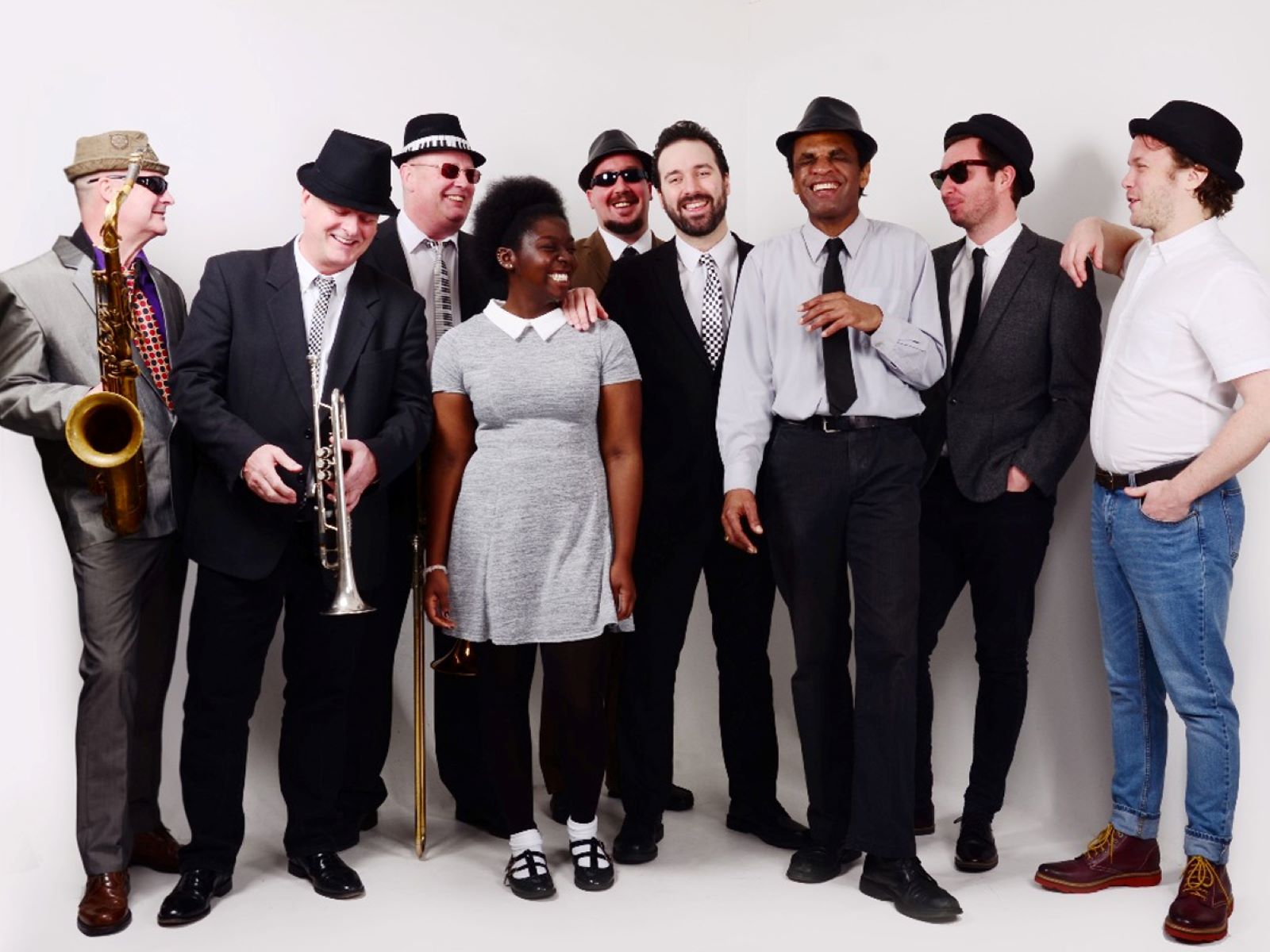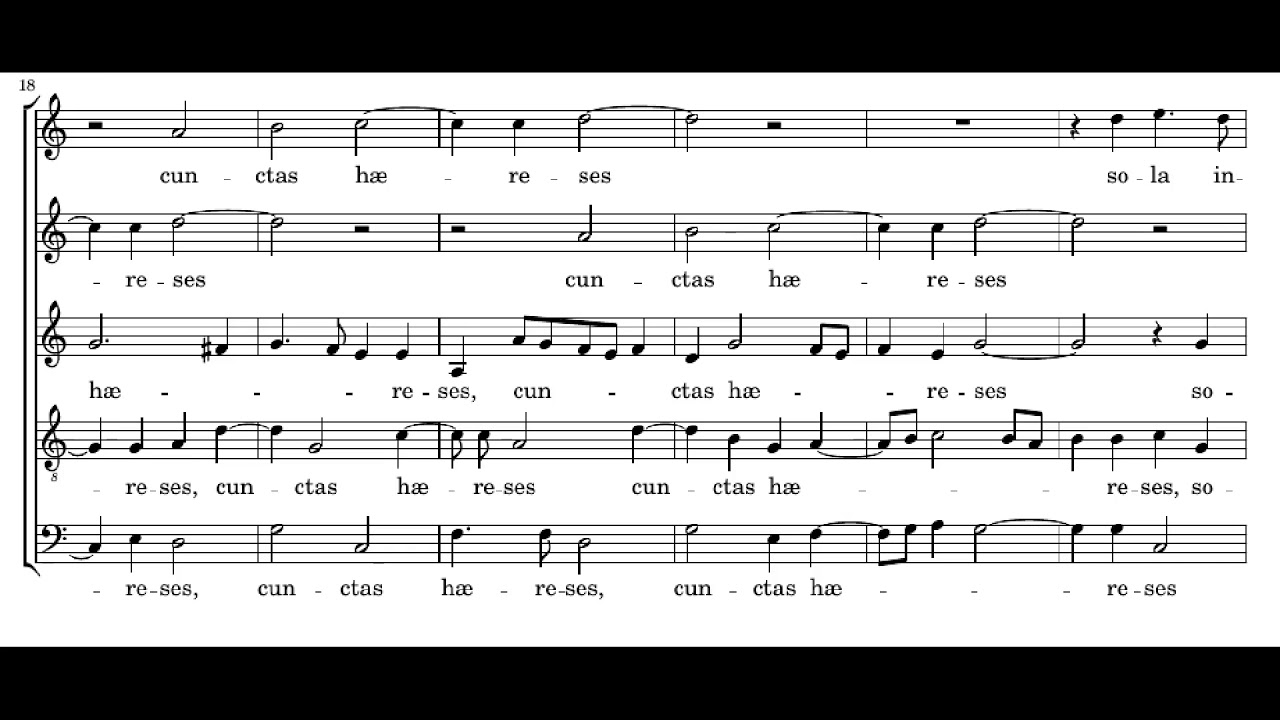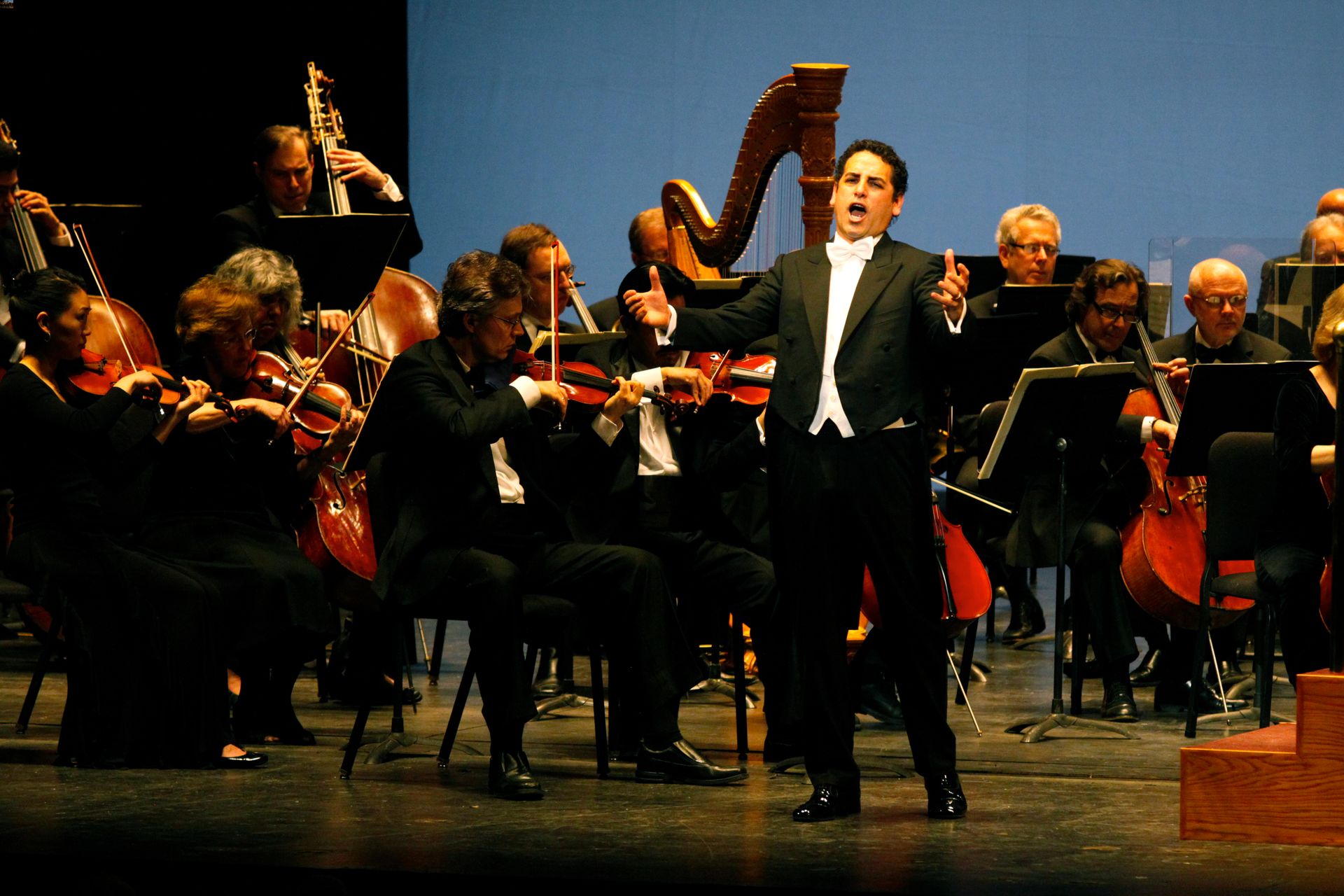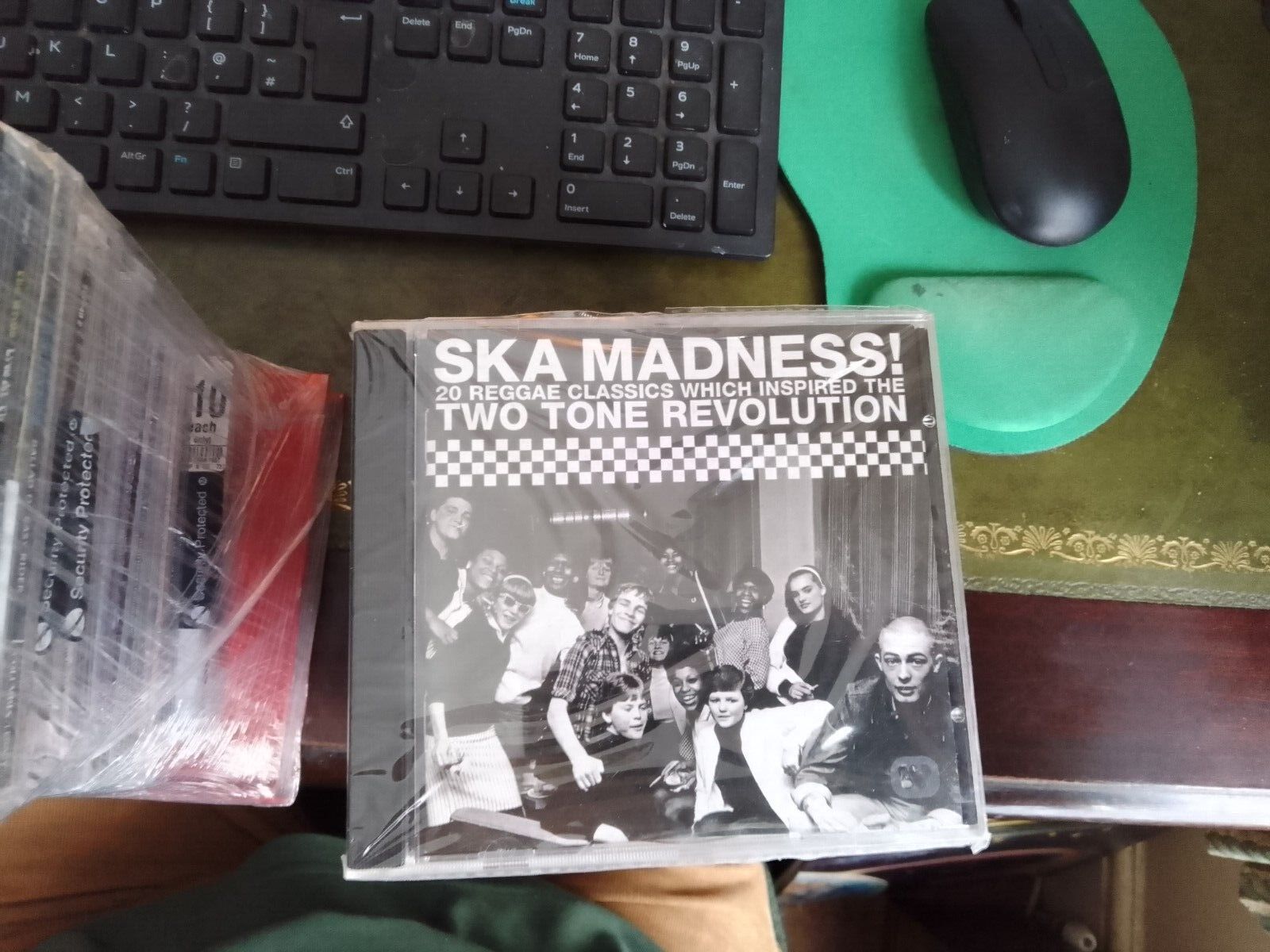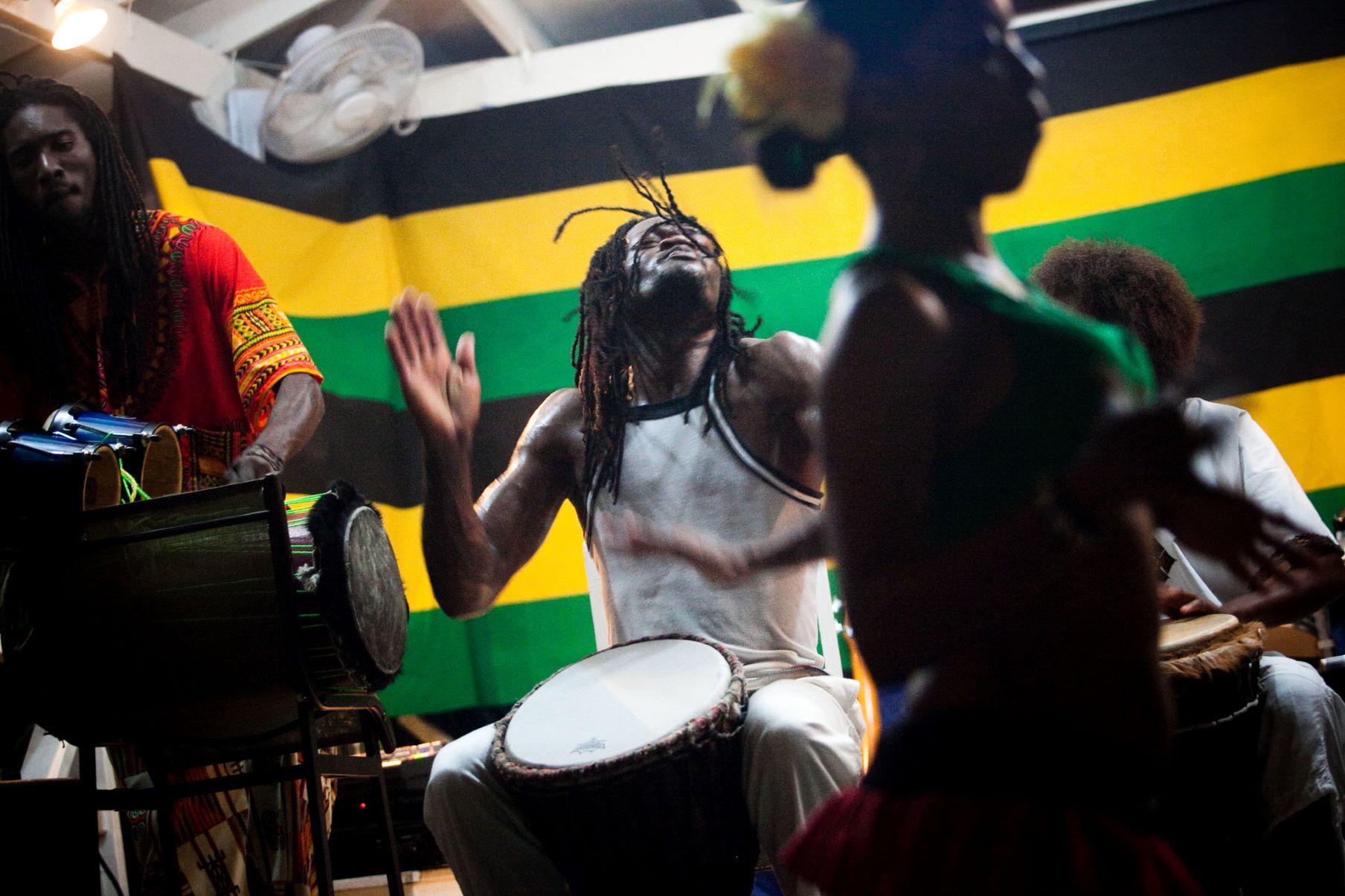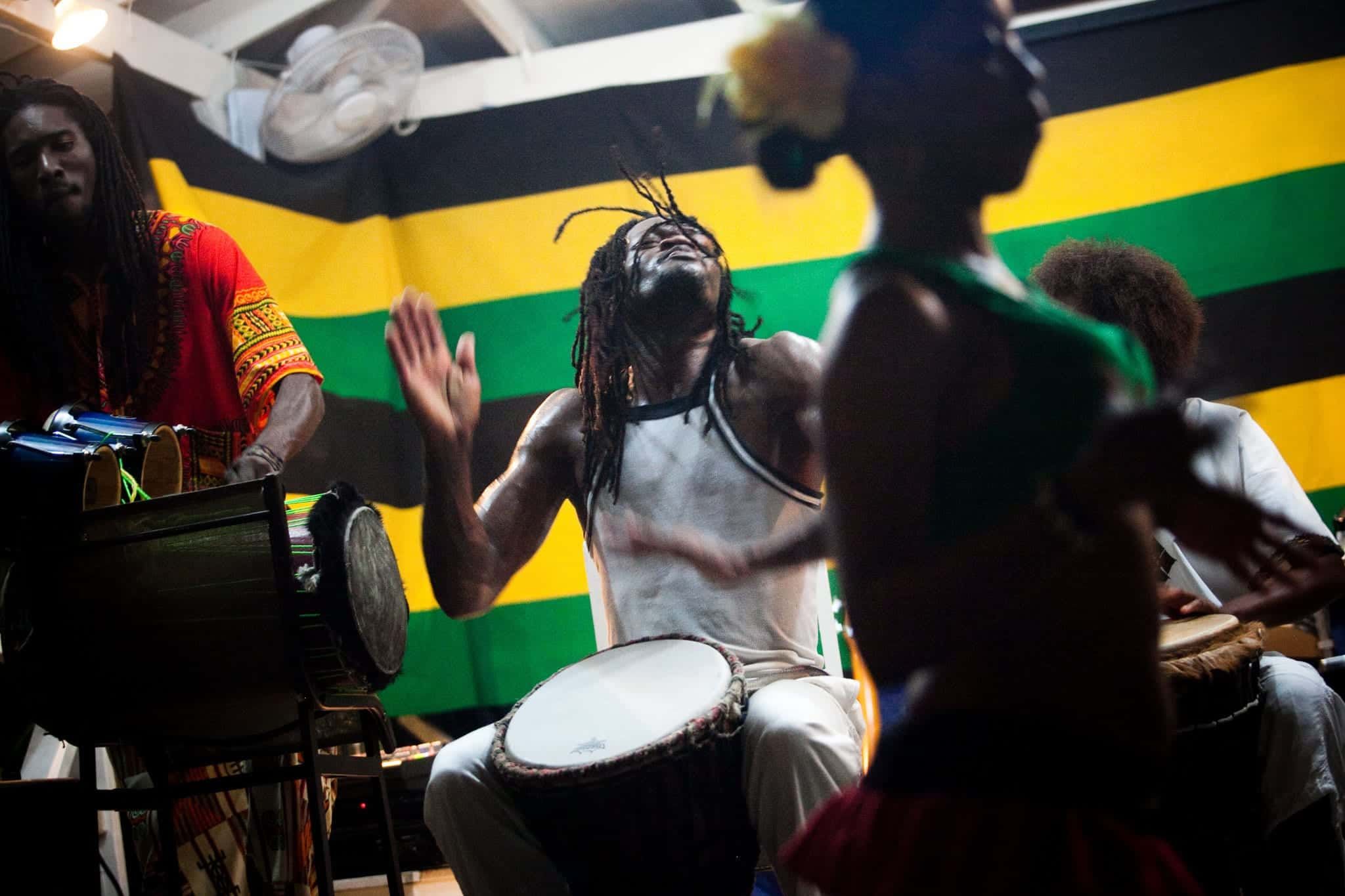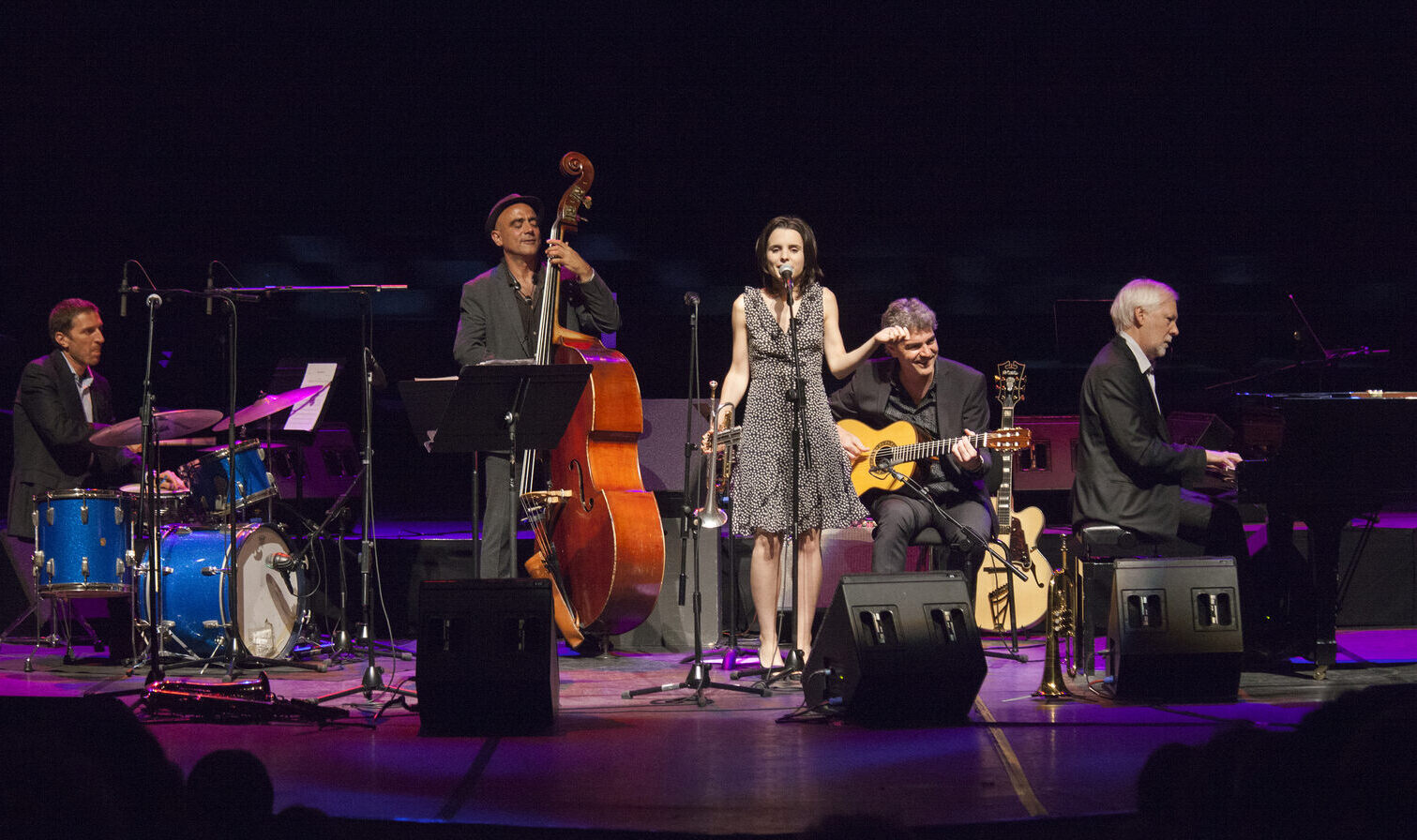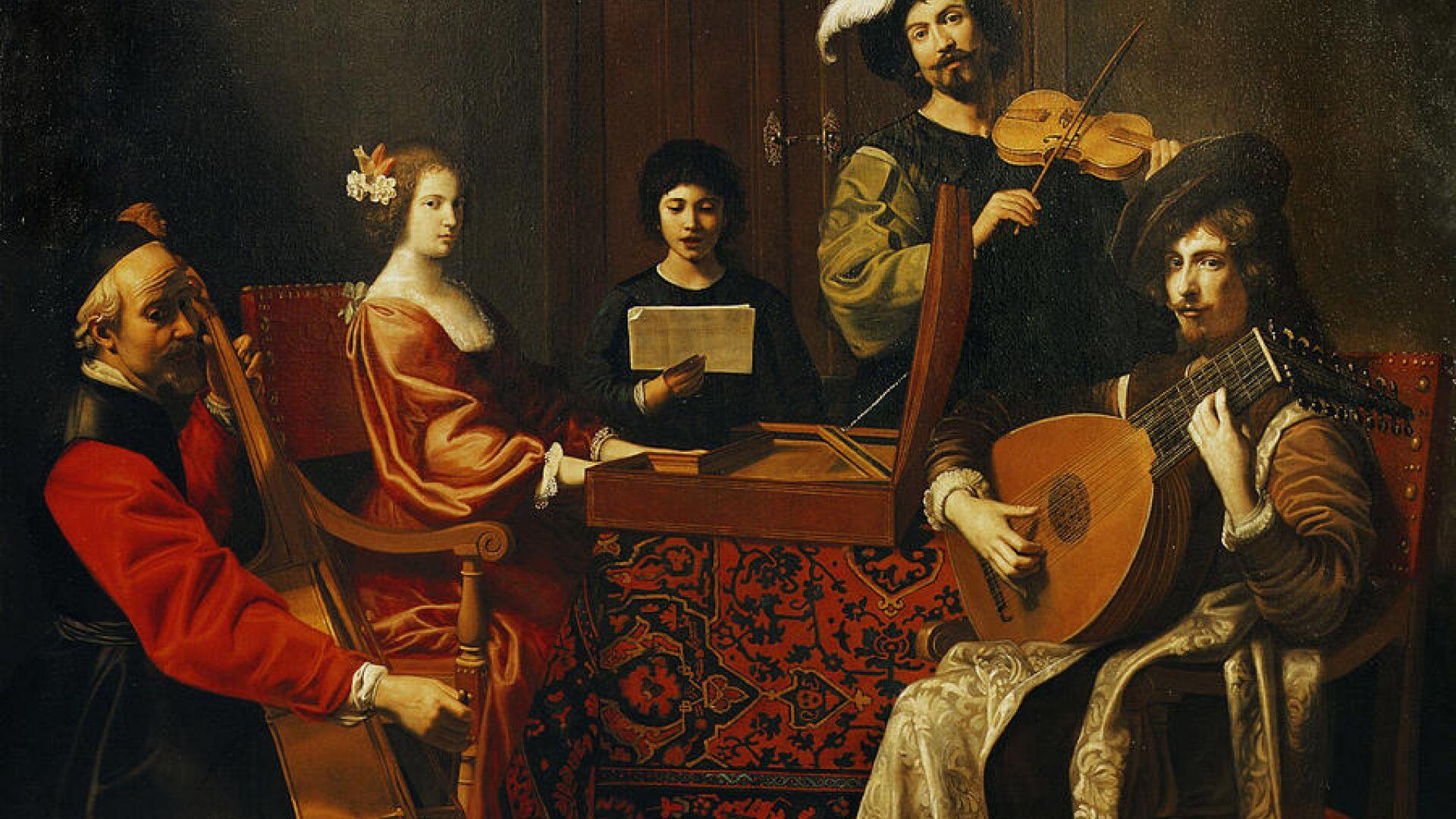Home>Genres>Reggae>The Musical Inspriation For Reggae Is Found In Which Style Of Music
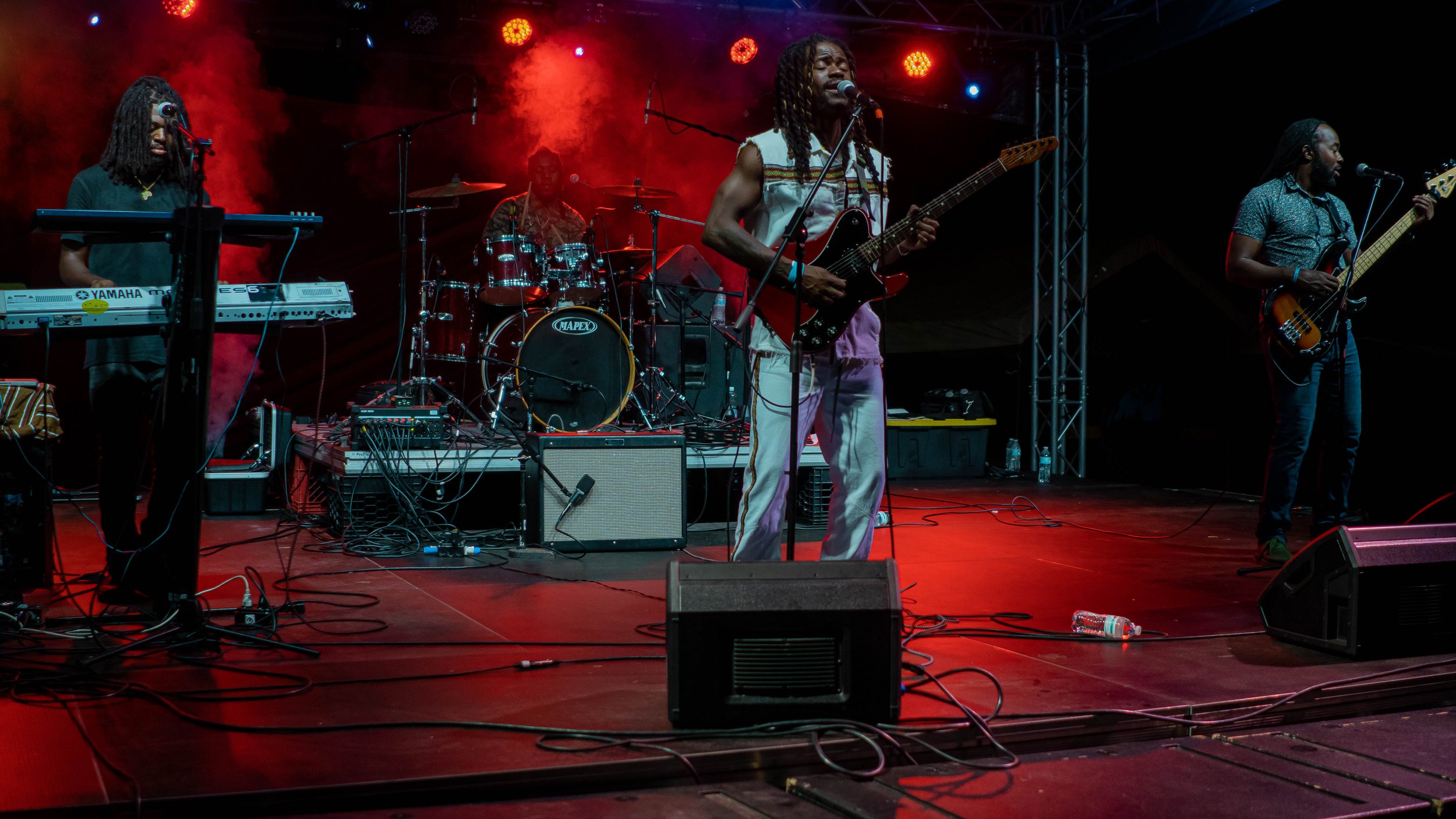

Reggae
The Musical Inspriation For Reggae Is Found In Which Style Of Music
Modified: February 15, 2024
Discover the musical inspiration behind Reggae, rooted in which style of music. Explore the origins and influences that shaped this iconic genre.
(Many of the links in this article redirect to a specific reviewed product. Your purchase of these products through affiliate links helps to generate commission for AudioLover.com, at no extra cost. Learn more)
Table of Contents
Introduction
Reggae music is a genre that has gained worldwide recognition and popularity for its distinctive sound and powerful messages. Originating from the vibrant and dynamic culture of Jamaica, reggae music has captivated audiences with its infectious rhythms and soulful melodies. With its roots deeply intertwined with the island’s history and folklore, reggae has become a powerful force for cultural expression and social change.
Reggae music emerged in the late 1960s, evolving from earlier Jamaican music styles such as ska and rocksteady. It was popularized by legendary artists like Bob Marley, Peter Tosh, and Jimmy Cliff, who used their music as a platform to speak out against injustice and promote unity and love. Over the years, reggae has grown into a global phenomenon, influencing countless musicians and genre crossovers.
In this article, we will dive into the origins of reggae music, explore its influences, and unearth the key musical inspirations that have shaped the remarkable appeal and uniqueness of this beloved genre.
The Origins of Reggae Music
The roots of reggae music can be traced back to the vibrant music scene of Jamaica during the 1960s. It emerged as a fusion of various musical styles, including ska and rocksteady, and was deeply influenced by the socio-political climate and cultural heritage of the island. Reggae music became a reflection of the struggles and aspirations of the Jamaican people, giving voice to their hopes, dreams, and frustrations.
One of the key figures in the evolution of reggae was producer Clement “Coxsone” Dodd, who founded the famous Studio One record label. Dodd’s studio became a breeding ground for talented artists and musicians, including Bob Marley, Peter Tosh, and Bunny Wailer. These artists, along with others like Jimmy Cliff and Toots and the Maytals, pioneered the reggae sound and propelled it onto the international stage.
Reggae was characterized by its laid-back, offbeat rhythms and syncopated guitar and basslines. It featured a strong emphasis on the “one-drop” rhythm, where the emphasis was placed on the third beat of a four-beat measure, creating a distinctive groove. The use of horn sections, soulful vocal harmonies, and mesmerizing melodies added depth and richness to the music.
Beyond its musical elements, the lyrics of reggae music played an essential role in shaping its identity. Reggae songs often touched on issues of social justice, equality, and spirituality. They offered a powerful commentary on the struggles faced by individuals and communities, advocating for unity, peace, and love.
One of the most iconic figures in reggae music was Bob Marley. His songs, such as “No Woman, No Cry” and “Redemption Song,” became anthems for the oppressed and disenfranchised, resonating with people around the world. Marley’s music served as a catalyst for exposing reggae to an international audience and solidifying its place in popular culture.
The popularity of reggae music grew steadily throughout the 1970s and 1980s, with influential artists like Burning Spear, Dennis Brown, and Gregory Isaacs contributing to its expansion. Reggae’s infectious rhythms and messages of love and unity appealed to people from diverse cultural backgrounds, transcending boundaries and fostering a sense of global connectedness.
Today, reggae continues to thrive and evolve, with new generations of artists adding their unique flavor to the genre. From the smooth crooning of lovers rock to the conscious lyrics of roots reggae, the legacy of reggae music lives on, inspiring and uplifting listeners around the world.
The Influences on Reggae Music
Reggae music is a product of the rich and diverse musical traditions that have shaped the Jamaican cultural landscape. Its sound has been influenced by various genres, both within the island and beyond. Understanding the influences on reggae music is key to appreciating its unique blend of styles and its ability to captivate listeners across the globe.
One of the primary influences on reggae is ska, a precursor to the genre that emerged in Jamaica in the late 1950s. Characterized by its upbeat tempo and lively horn sections, ska provided the foundation for the rhythmic patterns and elements that would become synonymous with reggae. The syncopated rhythm guitar and prominent basslines that are central to reggae can be traced back to the ska sound.
Another influential genre on reggae music is rocksteady. Emerging in the mid-1960s, rocksteady slowed down the frenetic pace of ska and introduced a smoother and more soulful sound. Rocksteady’s emphasis on deep basslines and relaxed grooves laid the groundwork for the laid-back and groovy vibes that would become characteristic of reggae music.
In addition to these Jamaican music styles, reggae was also influenced by various international genres. One of the most notable influences came from American rhythm and blues (R&B) and soul music. Artists like Otis Redding, Sam Cooke, and James Brown had a profound impact on reggae, with their soulful vocals and emotive performances resonating with Jamaican musicians. Their influence can be heard in the passionate and heartfelt singing styles of many reggae artists.
The influence of African music on reggae should not be overlooked either. Reggae drew inspiration from the rhythmic and percussive traditions of African music, infusing it with its unique Caribbean flavor. This can be heard in the prominent use of drums and other percussive instruments in reggae songs, adding a distinct rhythmic complexity to the music.
Furthermore, reggae music was influenced by the sounds of gospel and spiritual music. The connection between reggae and religion is evident in the powerful and uplifting lyrics that often touch on themes of faith, redemption, and social justice. Gospel music provided a template for the soul-stirring vocal harmonies and the call-and-response style that are a prominent feature of reggae music.
Overall, the influences on reggae music are vast and diverse. From Jamaican music styles like ska and rocksteady to international genres like R&B and African music, each influence has contributed to the development of the distinctive reggae sound. It is this fusion of musical traditions that has made reggae a genre with universal appeal, transcending cultural barriers and touching the hearts of people worldwide.
The Musical Inspiration Behind Reggae
Reggae music draws inspiration from a wide range of musical sources, incorporating elements from various genres to create its unique and captivating sound. While reggae has its roots in Jamaican music styles such as ska and rocksteady, it also takes inspiration from genres like jazz, blues, funk, and even classical music. This blend of influences has shaped the musical landscape of reggae, giving it its distinctive rhythm, melody, and instrumentation.
One of the key musical inspirations behind reggae is jazz. The improvisational nature and syncopated rhythms of jazz have influenced the rhythmic complexity found in reggae music. Artists like Ernest Ranglin, a Jamaican jazz guitarist, played an important role in bridging the gap between jazz and reggae, incorporating jazz influences into their music. This infusion of jazz elements added a level of sophistication and nuance to the reggae sound.
The blues also played a significant role in shaping the musical inspiration behind reggae. The raw emotion, soulful vocals, and storytelling nature of the blues influenced the lyrical content of reggae songs. Artists like Toots and the Maytals and Jimmy Cliff infused their music with bluesy elements, creating a powerful connection between the two genres. The blues provided the foundation for the heartfelt and poignant messages that are often conveyed in reggae music.
Furthermore, funk music had a profound impact on reggae, particularly in the 1970s. Funk’s emphasis on groove and rhythm meshed well with the laid-back nature of reggae, creating a dynamic blend that became known as “funky reggae.” Artists like James Brown and Sly and the Family Stone inspired reggae musicians to incorporate funky basslines, syncopated rhythms, and energetic horn sections into their music.
In addition to these genres, classical music has also served as a musical inspiration for reggae. Artists like Lee “Scratch” Perry and Augustus Pablo, known for their innovative production techniques, drew from classical compositions to create unique soundscapes in reggae. Their use of strings, horns, and other orchestral instruments added a sense of grandeur and depth to the music, elevating reggae to new heights.
Moreover, the influence of Caribbean music cannot be overlooked in the musical inspiration behind reggae. The rhythmic patterns and melodic structures of traditional Caribbean music, such as mento and calypso, have influenced the instrumentation and overall sound of reggae. Artists like Harry Belafonte, who popularized Caribbean music in the international scene, played a role in introducing Jamaicans to their own musical heritage and influencing the reggae sound.
Ultimately, the musical inspiration behind reggae is a rich tapestry woven from various genres and traditions. From jazz to blues, funk to classical, and Caribbean music to global influences, reggae has emerged as a genre that is both deeply rooted in its Jamaican origins and connected to a broader musical landscape. It is this diverse musical inspiration that has contributed to the enduring appeal and universal resonance of reggae music.
Conclusion
Reggae music, with its infectious rhythms, soulful melodies, and powerful messages, has captivated audiences around the world. Rooted in the vibrant culture and history of Jamaica, reggae music has evolved from earlier Jamaican styles such as ska and rocksteady, and has been influenced by various genres and musical traditions.
The origins of reggae can be traced back to the late 1960s, when artists like Bob Marley, Peter Tosh, and Jimmy Cliff used their music to advocate for social justice and promote unity. Reggae’s distinctive sound, characterized by laid-back rhythms and syncopated guitar and basslines, resonated with people both in Jamaica and beyond.
Reggae music is a testament to the power of musical inspiration. It draws from a myriad of sources, including jazz, blues, funk, classical music, and Caribbean traditions. The infusion of these influences has contributed to the unique and captivating nature of reggae, giving it its rhythm, melody, and instrumentation.
Moreover, the lyrical content of reggae music plays a crucial role in its popularity and impact. Songs often touch on themes of social justice, equality, and spirituality, providing a powerful commentary on the struggles faced by individuals and communities. Reggae’s heartfelt and uplifting messages have made it a genre that transcends cultural boundaries and resonates with people from all walks of life.
Today, reggae continues to thrive and evolve, with new artists adding their own creative touches to the genre. From the roots reggae of the past to the contemporary reggae fusion, the influence of reggae can be heard in various musical styles. Its impact can be felt in the music of artists across different genres, showcasing the universal appeal and enduring legacy of reggae music.
In conclusion, reggae music is an art form that encapsulates the spirit, history, and aspirations of the Jamaican people. It draws its inspiration from various musical genres and traditions, creating a unique and powerful sound. Reggae’s infectious rhythms, soulful melodies, and thought-provoking lyrics continue to inspire, uplift, and unite listeners worldwide.

